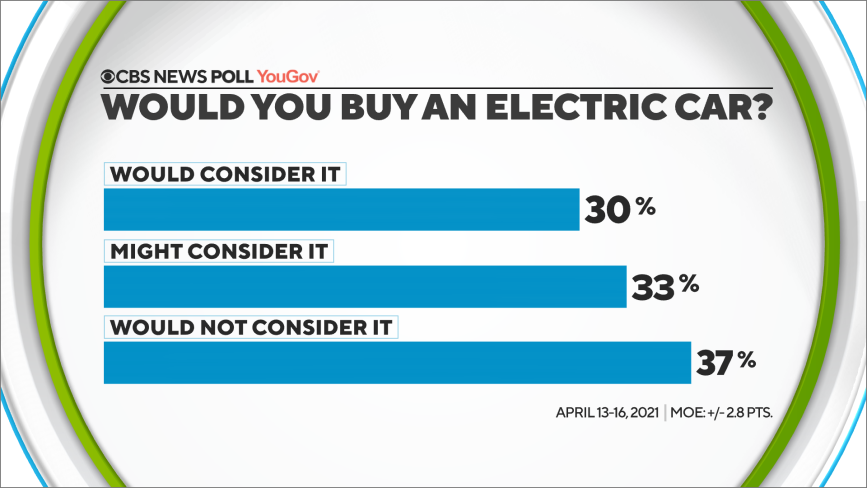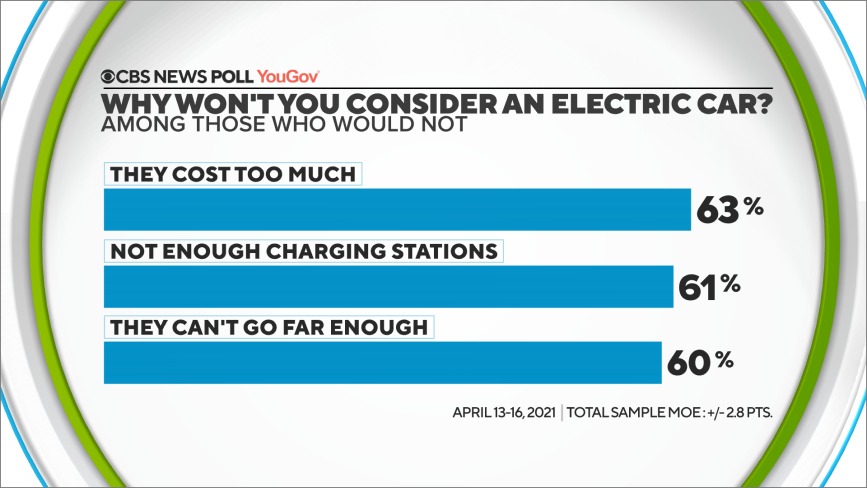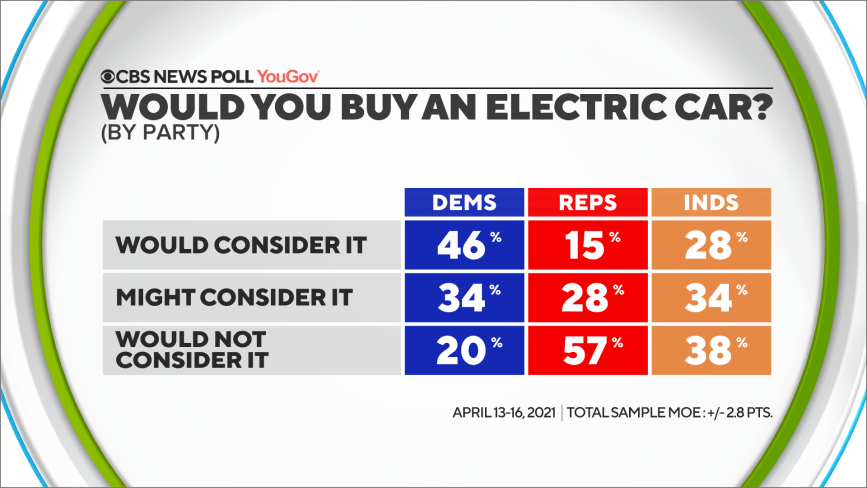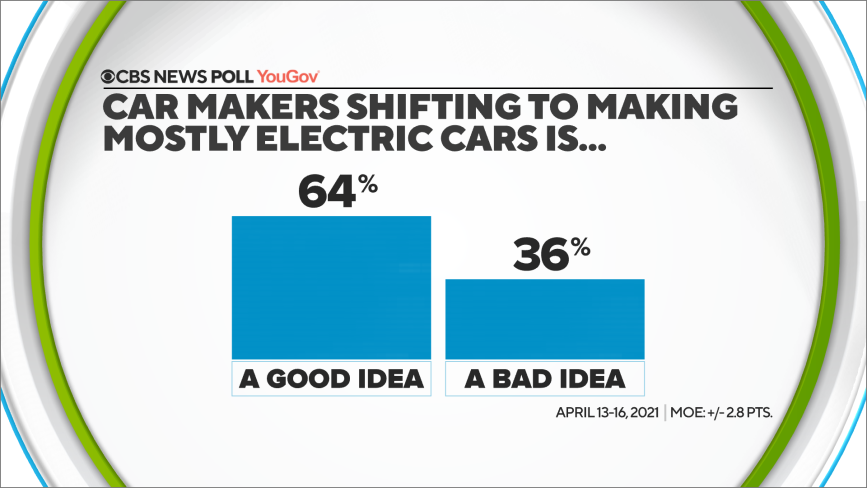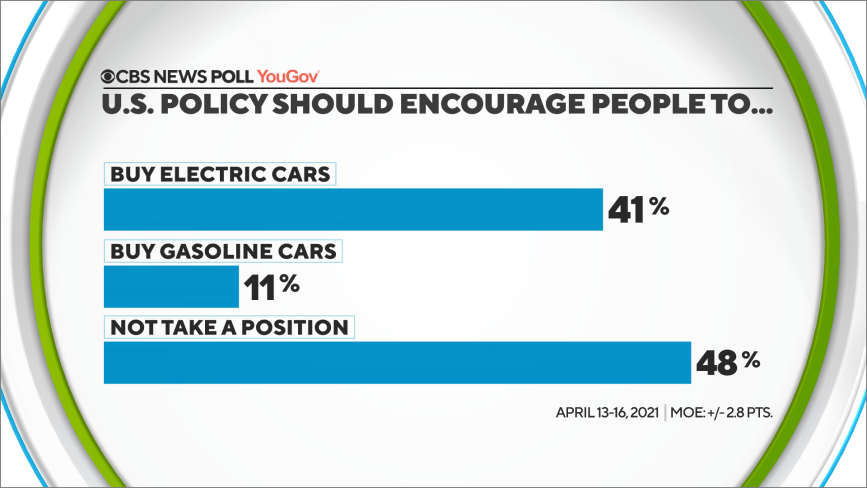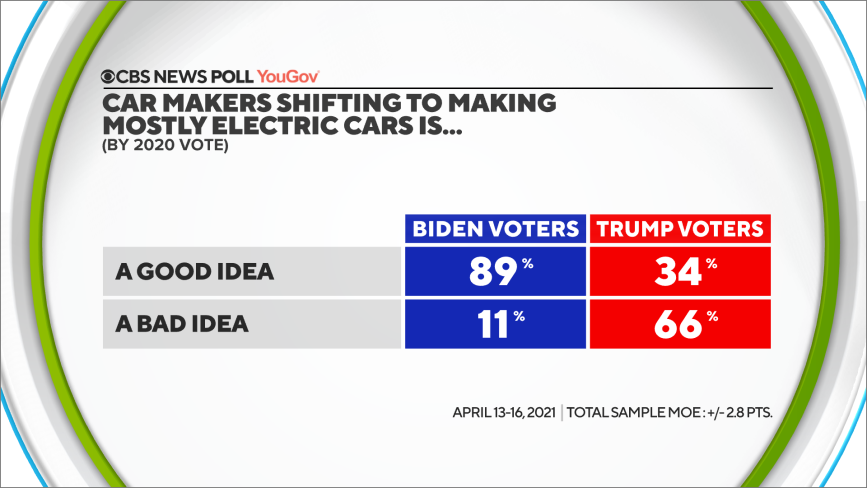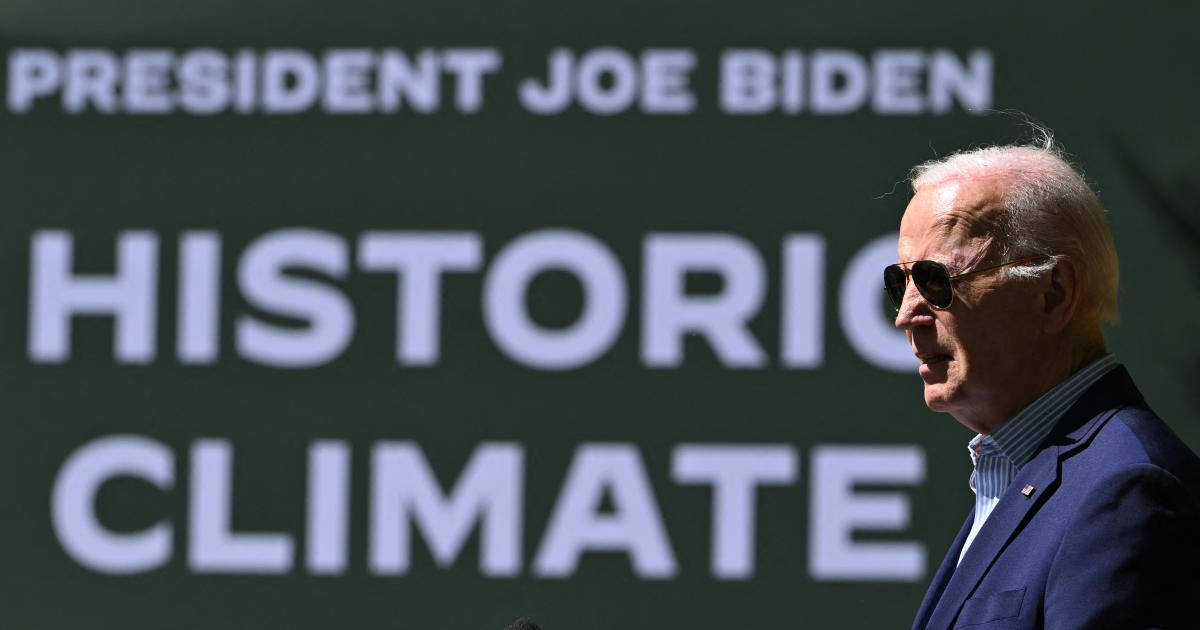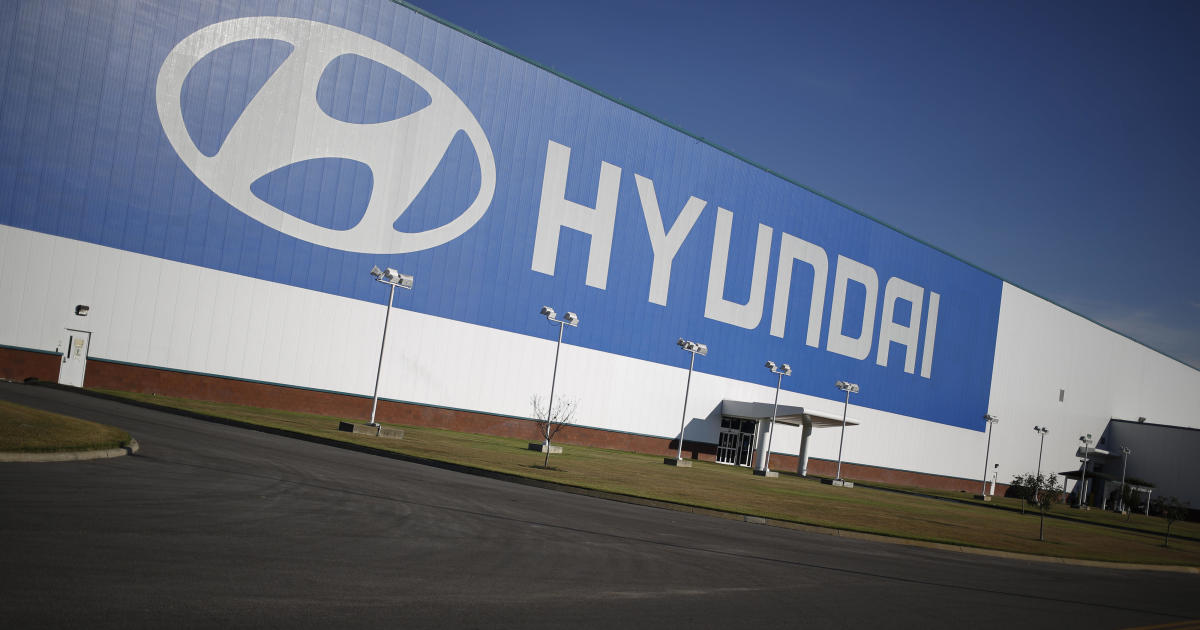CBS News poll — Eye on Earth: What drives views on electric cars?
Americans' collective thinking on electric cars is a bit ... middle of the road. A third of people say they'd consider buying an electric vehicle (EV), while another third say they might. Just over a third would not. By contrast most would still consider a traditional gasoline-powered one. But behind that, we find views coming from very different places.
It's clear this is at least somewhat a matter of practicality. Asked why they wouldn't consider one, the top answers people gave were they feel these cars cost too much, don't go far enough on a charge, and that there aren't enough charging stations on the road.
Given that, people who earn more money are more likely to consider one (though not overwhelmingly so, we should add), and people living in suburbs are a little more likely than those in rural areas to think about an EV.
But an even bigger difference? It's that phenomenon fueling so much of public opinion now: partisanship.
Democrats are a lot more likely to at least say they'd buy an electric car than Republicans are. That's true wherever the two groups live: cities, towns, or rural areas alike.
It's not entirely clear from polling how much is wrapped up in partisan affiliation. Republicans are more negative on electric cars for all those practical aforementioned driving concerns, like range and cost, and few Republicans reject them outright as simply not "what people like me drive." Part of this attitude appears to be tied up in their general approach toward climate change, since Republicans are less likely to think climate change needs to be addressed — a view that would, in turn, make any perceived inconveniences or costs of switching to electric additionally seem impractical or just unnecessary.
Democrats are much the opposite in generally seeing climate change as urgent, and that in turn appears to lead to them to at least express consideration of electric cars. We can see some of that philosophy at work across income levels. Democrats of higher income are more likely to say they'd buy one than Democrats with lower incomes — not surprising given the perceived cost barriers. But, at every income level, Democrats were relatively more likely than Republicans to say they'd consider one.
Next we look at what direction the U.S. should take regarding electric car policy, and manufacturing.
There's a lot more backing for policy generally promoting electric cars than for promoting gas cars — by about four to one. In this regard, though, Republicans tend to think the government ought not take a stance. And for car makers who've announced they'll start phasing out gasoline cars, two-thirds of the public thinks that's a good idea. Democrats and Joe Biden 2020 voters, in accordance with other views, especially think so, and Republicans and Donald Trump voters in particular, do not.
This CBS News survey was conducted by YouGov using a nationally representative sample of 2,003 U.S. residents interviewed between April 13-16, 2021. This sample was weighted according to gender, age, race and education based on the American Community Survey, conducted by the U.S. Bureau of the Census, as well as the 2020 presidential vote and registration status. The margin of error is ± 2.8 points.
